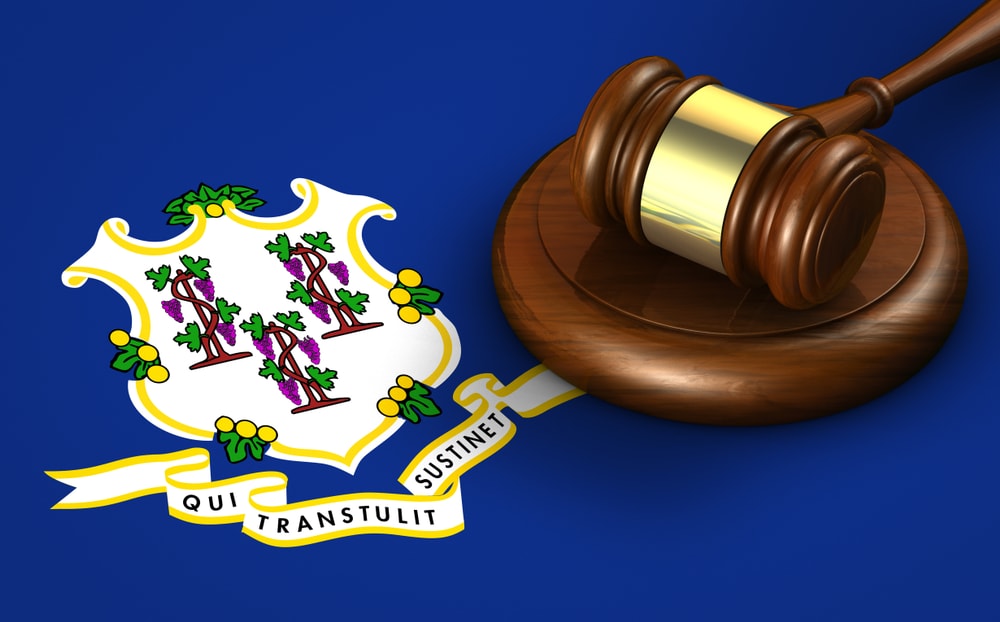Connecticut takes drugs and alcohol seriously. If you possess or sell drugs, you can face fines and jail time. Driving under the influence (DUI) leads to losing your license and other penalties. Here is a look at the drug and alcohol laws in Connecticut.
DUI Laws in Connecticut
Driving while under the influence of drugs or alcohol is illegal in Connecticut. You face penalties if your blood alcohol (BAC) level is over 0.08%. Plus, if you refuse to take a breathalyzer, the state considers you to be guilty of a DUI.
For first and second offenses, you can lose your license for 45 days. A third offense leads to losing your license permanently. But you can apply for a reconsideration after two years.
In all cases, you can only get your license back if you install an Ignition Interlock Device (IID). You have to blow into this device before you start your car. Your car won’t start unless you prove you haven’t been drinking.
Zero Tolerance Laws for Connecticut
Connecticut has a zero tolerance law for drivers under the age of 21. If you are caught with any trace of alcohol in your system while driving, you automatically lose your license for three months. The law defines a trace of alcohol as 0.02% BAC.
Is Marijuana Legal in Connecticut?
Marijuana is not legal in Connecticut. The state allows medical marijuana. Patients must get a prescription from a certified physician. Then, they have to register at a dispensary, and they can only buy the marijuana from that location. As of 2018, the state has 18 medical dispensaries.
You can get a prescription for cancer, glaucoma, epilepsy, and many other issues. The list of qualifying conditions is different for children and adults. If you are not a registered patient or caregiver, possessing marijuana is illegal.
Drug and Alcohol Related Crimes
Drinking and driving is just one of the drug and alcohol-related crimes in Connecticut. Possessing illegal drugs, which include narcotics, acid, mushrooms, and marijuana, is also a crime.
Here are the most common drug crimes in Connecticut:
- Selling heroin, cocaine, or methadone that leads to the user’s death.
- Selling at least 5mg LSD.
- Hiring a minor to sell drugs.
- Selling drugs within 1,500 feet of a daycare, elementary school, secondary school, or public housing project.
- Possessing drug paraphernalia with intent to use it.
- Selling at least 1oz heroin, cocaine, or methadone.
- Obtaining controlled substances by fraud.
- Selling at least 1kg marijuana.
- Misrepresenting substances as controlled.
- Selling other illegal drugs.
- Illegally selling or possessing prescription drugs.
- Selling drugs to a minor who is at least two years younger than you.
- Selling at least 5g crack.
The state treats addicts who sell drugs differently than non-addicts. If you are dependent on drugs, the state may not convict you of selling drugs unless you cause a death, deal with minors, or sell near a school or daycare.
Penalties for Drug or Alcohol Abuse in Connecticut
You can face these penalties for possessing narcotics including heroin, cocaine, and crack:
- First offense — Up to seven years in jail, up to a $50,000 fine.
- Second offense — Up to 15 years in jail, up to a $100,000 fine.
- Additional offenses — Up to 25 years in jail, up to a $250,000 fine.
Here are the penalties for possessing hallucinogens and four or more ounces of marijuana:
- First offense — Up to five years in jail, up to a $2,000 fine.
- Additional offenses — Up to 10 years in jail, up to a $5,000 fine.
For less than four ounces of marijuana, you can face a year in jail and a $1,000 fine for the first offense. For subsequent offenses, the penalty is up to five years in jail and a $3,000 fine.
As of 2012, possessing less than half an ounce of marijauana is a civil violation. You cannot get jail time for this amount of marijuana. But you can face the following penalties:
- First offense — Fine up to $150.
- Second offense — Fine from $200 to $500.
- Third offense — Fine plus required to attend a drug awareness program.
- If under age 21 — 60-day driver’s license suspension.
Being caught with drugs near a daycare center carries stiffer penalties, including a mandatory two-year jail sentence.
If you have drugs in Connecticut, you can face serious penalties. Drinking and driving is also a serious crime. Don’t get charged with a crime. Get help with your addiction now. To learn more, contact us today. Our treatment centers can help you.
Sources
- https://portal.ct.gov/DMV/Suspension/Suspension/Operating-Under-the-Influence—OUI
- https://portal.ct.gov/DOT/PP_Policy/Documents/Impaired-Driving
- https://portal.ct.gov/DCP/Medical-Marijuana-Program/Qualification-Requirements
- https://www.cga.ct.gov/PS98/rpt%5Colr%5Chtm/98-R-1003.htm

